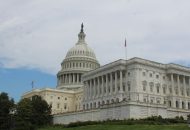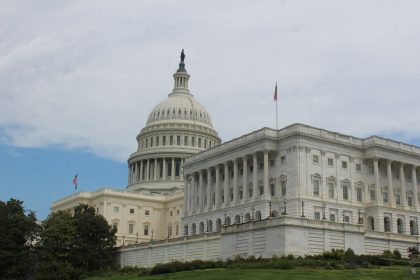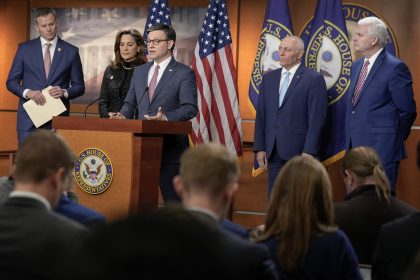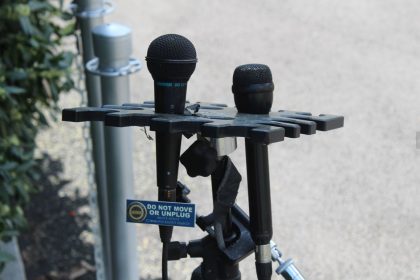Ending Broadcast TV Blackouts at Center of STELAR Reauthorization

With what seems like an annual tradition, consumers flip on their TV to catch a playoff game or some other “must see TV” program only to find the station blacked out in the pay TV provider’s lineup because the provider can’t reach an agreement with the station owner on the fee they must pay to carry the broadcast signal. These blackouts could be even more widespread if Congress doesn’t seize the opportunity to update the rules that govern these retransmission consent negotiations between pay TV providers and broadcasters.
Since 2006, retransmission fees have gone from about $215 million to $11.7 billion in 2019, an increase of 5,359%. Already in 2019, consumers have seen 276 blackouts, breaking the previous annual record of 213, according to the American Television Alliance (ATVA), a coalition of consumer groups, cable, satellite, telephone companies and independent programmers. Additionally, in a recent poll of 900 cable and satellite television consumers by ATVA, 56% say broadcasters should not be permitted to pull their signal while negotiating retransmission fees.
On Wednesday, the Senate Committee on Commerce, Science, and Transportation, will convene a hearing titled, “The Reauthorization of STELAR.” The Satellite Television Extension and Localism Act (STELAR) is the law that allows satellite providers to import distant TV signals into local markets where viewers can’t otherwise access them. STELAR must be renewed by the end of the year or it will lapse, resulting in more than 870,000 satellite television subscribers losing access to broadcast programming. When announcing the hearing, the Committee indicated it would examine the law’s good faith requirement that guides the carriage negotiations between satellite, cable and telco companies and broadcasters.
“The blackout crisis is the worst it has ever been and it will only continue to get worse if Congress fails to reauthorize STELAR and the FCC’s ‘good faith’ authority,” said Trent Duffy, ATVA spokesman. “ATVA applauds Senators Wicker and Cantwell for holding this important hearing. We urge the committee to not only reauthorize STELAR, but also fix this broken system that for too long has favored broadcasters at the expense of consumers.”
An important bill is also being considered in the House by Representatives Anna Eshoo, D-Calif., and Steve Scalise, R-La., that is trying to end perennial broadcast television blackouts that pit providers and networks against each other with consumers stuck in the middle.
The bipartisan Modern Television Act of 2019 repeals key provisions of the outdated 1992 Cable Act, including retransmission consent and compulsory copyright license, that have stymied competition and led to broadcast TV blackouts that affect millions of consumers.
Broadcast television blackouts happen with regularity as content providers have contract disputes with cable and satellite providers. Earlier this year, CBS and DirecTV were in a nearly three week long dispute that resulted in blackouts of 26 CBS-owned stations.
Disputes over these fees have become more frequent, along with channel blackouts, with declining ad revenues leading broadcasters to raise rates on consumers. The anticompetitive blackouts leave paying customers unable to watch sports and other programs and are left to the whims of the two sides reaching an agreement.
“These outdated laws aren’t just bad for the market, they are hurting consumers. When blackouts take place, consumers are held hostage during the disputes between the broadcasters and the cable company,” said Representative Eshoo.
The House bill takes a number of steps to end consumers’ angst and put an end to these blackouts. It repeals retransmission consent, compulsory copyright licenses, and several other outdated statutory provisions and regulations that would allow free-market contract negotiations to happen under traditional copyright law.
Additionally, it extends the “Good Faith” negotiation requirements (that as part of STELA otherwise expire at the end of the year) and applies these requirements to small- and medium-sized cable operator buying groups. This will allow smaller competitors to band together in negotiations for programming and result in lower costs for consumers.
And importantly, it protects consumers from experiencing broadcast blackouts when MVPDs and broadcasters fail to extend an agreement by requiring broadcasters to allow pay TV providers to carry a broadcast signal for up to 60 days while the parties continue negotiations. Parties will be retroactively paid for their content aired during this time.
“It’s time for Congress to finally modernize these laws. Our bill goes back to basic copyright protection, so that everyone gets paid for their product, and consumers get to choose whatever they want to buy, wherever they want to buy it, whatever device they want to watch their video on,” said Representative Scalise.
























